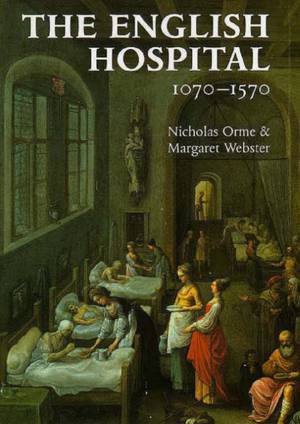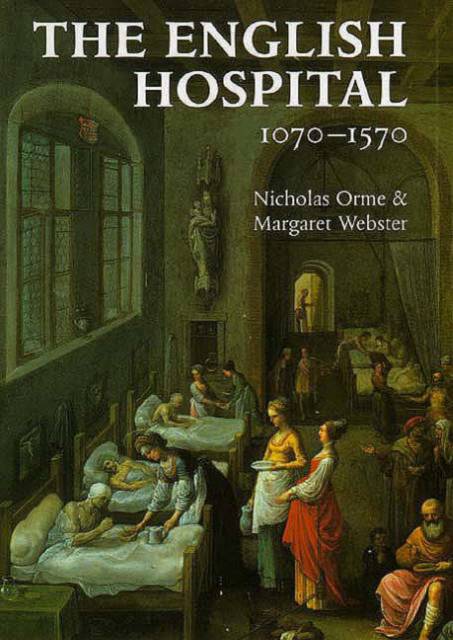
En raison d'une grêve chez bpost, votre commande pourrait être retardée. Vous avez besoin d’un livre rapidement ? Nos magasins vous accueillent à bras ouverts !
- Retrait gratuit dans votre magasin Club
- 7.000.000 titres dans notre catalogue
- Payer en toute sécurité
- Toujours un magasin près de chez vous
En raison de la grêve chez bpost, votre commande pourrait être retardée. Vous avez besoin d’un livre rapidement ? Nos magasins vous accueillent à bras ouverts !
- Retrait gratuit dans votre magasin Club
- 7.000.0000 titres dans notre catalogue
- Payer en toute sécurité
- Toujours un magasin près de chez vous
142,45 €
+ 284 points
Description
The first English hospitals appeared soon after the Norman Conquest. By the year 1300 they numbered over 500, caring for the sick at every level of society--from the gentry and clergy to pilgrims, travelers, beggars, and lepers. Excluded from towns but placed by main highways where they could gather alms, they had a complex relation with medieval society: cherished yet marginalized, self-contained yet also parasitic. This book--the first general history of medieval and Tudor hospitals in eighty-five years--traces when and why they originated and follows their development through the crisis periods of the Black Death and the English Reformation when many disappeared. Nicholas Orme and Margaret Webster explore the hospitals' religious, charitable, and medical functions, examine their buildings, staffing, and finances, and analyze their patients in terms of social background and medical needs. They reconstruct the daily life of hospitals, from worship to living conditions, food, and care. The general survey is complemented by a regional study of hospitals of the southwest of England, including detailed histories of all the recorded institutions in Cornwall and Devon.
Spécifications
Parties prenantes
- Auteur(s) :
- Editeur:
Contenu
- Nombre de pages :
- 320
- Langue:
- Anglais
Caractéristiques
- EAN:
- 9780300060584
- Date de parution :
- 26-07-95
- Format:
- Livre relié
- Format numérique:
- Genaaid
- Dimensions :
- 165 mm x 242 mm
- Poids :
- 607 g

Les avis
Nous publions uniquement les avis qui respectent les conditions requises. Consultez nos conditions pour les avis.






